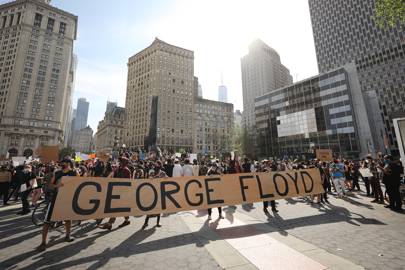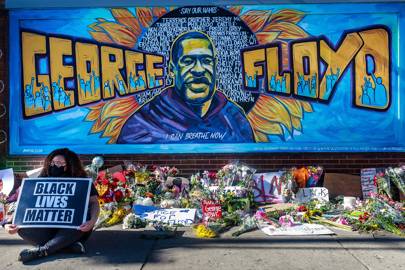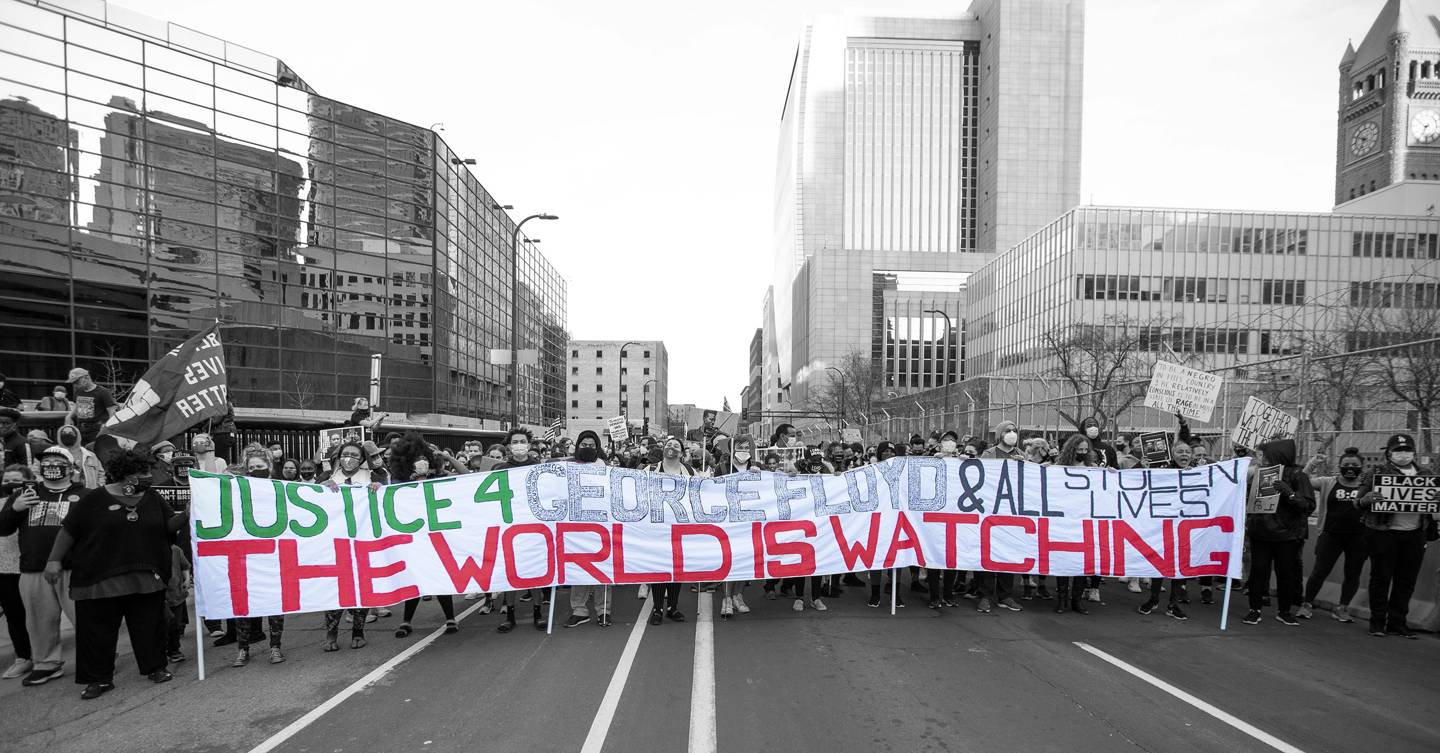At around 8pm on Tuesday 20th April, a breaking news notification made my breath catch in my chest.
After nine hours of deliberation, a Minnesota jury had come to a verdict on former police officer Derek Chauvin, who was filmed kneeling on George Floyd’s neck for over nine minutes last May.
The clip shows Chauvin using his body weight to pin the father-of-one to the ground, ignoring his desperate cries for his mother and protesting that he couldn’t breathe until he loses consciousness. To this day, I’ve never seen the clip for myself, but the details of what happens in it have been near impossible to escape.
It was nearly time to discover whether Chauvin would face consequences for killing George Floyd in plain sight, or whether he’d walk free. And although the chilling interaction makes Chauvin’s guilt obvious, I braced myself, along with many other Black people across the world – we’ve been here before.
There have been more cases than anyone could accurately note of a police officer killing a Black person and leaving the courthouse facing no consequences – if the case ever made it to court at all. Eric Garner was killed in 2014 after Daniel Pantaleo put him in an illegal chokehold during an arrest – he’d been suspected of selling single cigarettes from untaxed packets.

Getty Images
Though like in George Floyd’s case, this incident was captured on video, with Mr Garner also shouting ‘I can’t breathe’ in his last waking minutes, a grand jury decided not to indict Pantaleo. Similarly, the officers that shot and killed medical worker Breonna Taylor in Louisville, Kentucky last March weren’t indicted either.
The maddening cycle of ‘kill, court, freedom’ has broken the spirits of plenty of people too many times before to expect that, even given the evidence and the attention the case has gained, Chauvin would unequivocally face punishment for ending a Black man’s life.
But after an agonising two-hours wait, the verdict was announced – Chauvin was indeed found guilty on all three charges: second-degree murder, third-degree murder and manslaughter.
It was what many of us wanted to hear. Finally: a consequence for someone killing a Black person. Having been denied this result on so many prior occasions, the verdict gave some a brief moment of respite – at last, the legal process has worked in a way that seems to admit that taking a Black life is something that warrants a penalty.
But while news pundits were quick to declare that justice had been served, there was a feeling of emptiness for many who’d watched this unfold. Though the decision felt like the right one, very little satisfaction came from the news that Chauvin will likely face a long prison sentence.
Now that we have this result, it doesn’t feel anywhere near adequate. George Floyd is still dead – and unfortunately, it had no effect on the countless other victims of police brutality that have happened before and since May 2020, or even since the verdict itself.
Mere hours after Chauvin’s case was decided, a 16-year-old Black girl named Ma’Khia Bryant was shot to death by police in Columbus, Ohio, cutting short that period of exhalation. It’s a horrifically timely reminder that there’s no letting up from police brutality – a guilty verdict in one case didn’t manage to stop the simultaneous death of a school student at the hands of the authorities.
Change isn’t something that can be considered on an individual basis – the system is at fault at its core.
The Black Lives Matter movement emerged from institutional failures to see the lives of Black people being as worthy as others, following the deaths of Trayvon Martin, Mike Brown, Sandra Bland and others in the 2010s. Contrary to what some would like to believe, the movement won’t go away now just because one agent of brutality has been found guilty. As long as Black people are treated as disposable, the fight to eradicate white supremacy from society must continue.

Getty Images
It shouldn’t have to take global outrage for killers to be held accountable – for every George Floyd, there are countless others whose names won’t receive a headline; countless others whose last moments weren’t caught on video; countless others whose losses don’t spark worldwide protest.
They all deserve to be alive, and even if every killer was imprisoned as a result, it doesn’t fix the system that allows this to happen so often. No amount of convictions will bring back the lives that have been lost, nor will the lives lost eventually prove to have a form of silver lining.
Addressing the verdict, the Speaker of the US House of Representatives Nancy Pelosi thanked Mr Floyd ‘for sacrificing your life for justice’ – a sentiment that has been repeated several times since he was killed.
Though meant in good faith, it’s insulting to look at Floyd’s death as something to see the positives in, or to thank him for – because he should have never died in the first place. He didn’t have the choice to be the face of a movement for change and would surely prefer to be alive today, raising his seven-year-old daughter Gianna, rather than immortalised for his untimely death.
Furthermore, martyrising those who die unfairly at the hands of others erases them as full people – they become hashtags or the lead title of a pretty swipe-through Instagram graphic, rather than the parents, children and friends that their loved ones people knew them as.
There are eight weeks until Chauvin will receive his sentence from the judge. However, nothing feels like enough. Though it’s good that there’s some accountability, this is the bare minimum that should have happened – and that’s not something to celebrate.
As long as we’re suspended in this state of hope that people won’t be allowed to take Black people’s lives and get away with it, the structure continues to hold Black people in an unequal position. People will keep dying unless this is taken as a moment to truly reckon with how deep the disease of racism is rooted in the foundations of our society – in the US, here in the UK, and beyond.
This conviction is by no means the end of the road; the work goes on.

